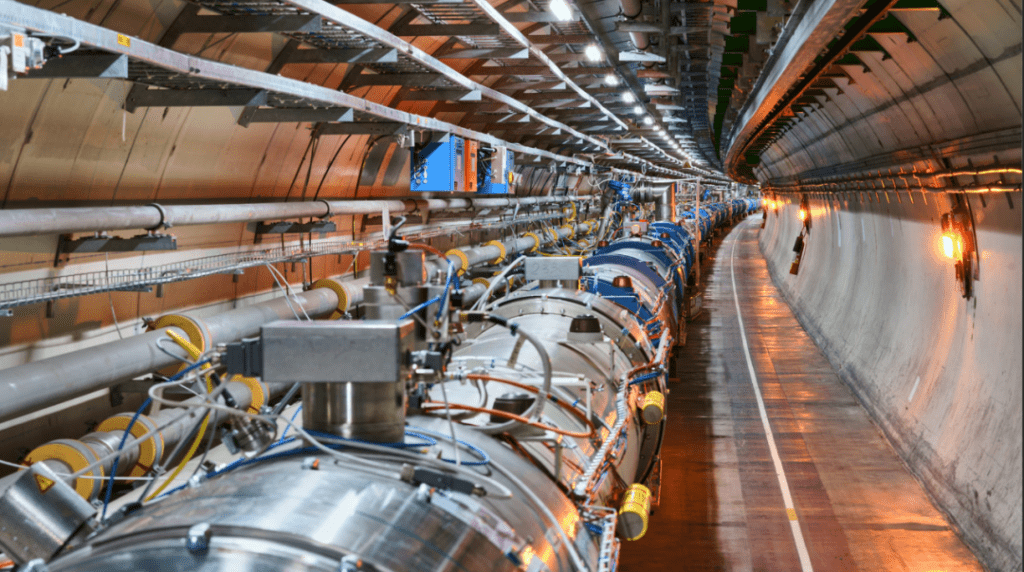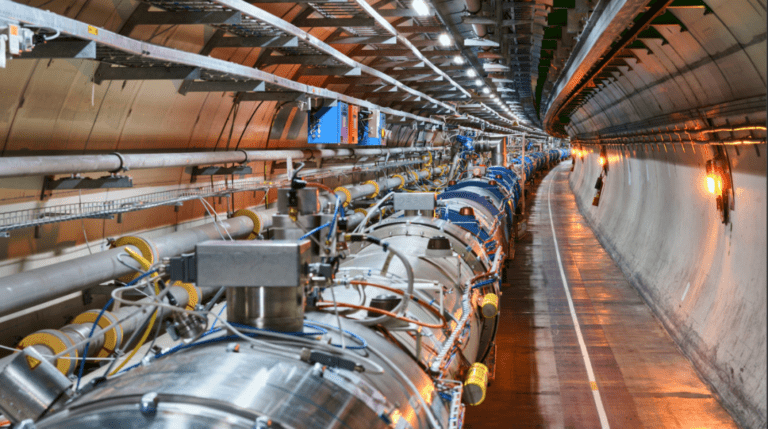
The Standard Model is the best model of particle physics available.
According to the prediction of the standard model, different charged leptons – electron, muon, and τ – which differ only in mass, the three particles
Other properties (such as charge, spin, etc.) should be identical, a property known as lepton-flavor universality (LFU).
However, the Large Hadron Collider (LHC) team at CERN has reported several experimental results that may violate the LFU between 2014-2021.
If such results were confirmed, it would mean that there are holes in the Standard Model and that we would have a whole new particle physics.
But unfortunately, the latest detailed analysis shows that this series of results is not reliable, so we do not get completely new physics.
Specifically, the LHCb team studied the decay process of a B meson involving a K meson, which decays to produce a pair of positive and negative leptons – either an electron and a positron, or a muon and an anti-muon.
According to LFU, the probability of producing electrons and muons is strictly equal.
However, this difference in probability was reported by LHCb in their 2021 paper, where they concluded that the muon was produced with only an 85% probability of the electron, and with a confidence level of 3σ that the probabilities were not equal.
However, after a year of lengthy review (Paper 1, Paper 2), the LHCb admitted that the previous analysis was problematic.
The anomaly was generated by “a series of surprisingly small errors in series”.
With the overturning of the results, we are left with a number of anomalies that could break the Standard Model, including the decay of a B meson that does not involve a K meson, and the larger-than-expected mass of the W boson, among others.
